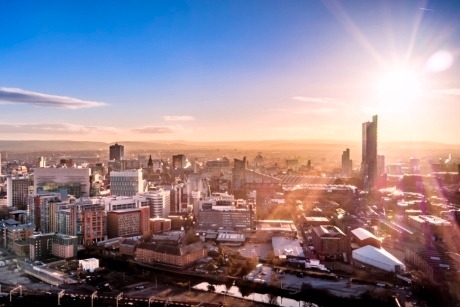Manchester has been awarded the title European City of Science 2016, and schools can get involved in the yearlong celebrations by taking a trip to one of the city’s Science-themed attractions.

The accolade has been presented by EuroScience, the European organization of scientists, in recognition of Manchester’s scientific heritage and contribution to discovery, innovation and industry.
It’s common knowledge that Manchester played a part in the Industrial Revolution, but how many children know that the modern canal, the cast iron beam and the steam hammer also originated there?
This year, teachers will be able to pick and choose from a collection of events and attractions spread across the city, to aid learning about a variety of scientific topics.
The Museum of Science and Industry (MOSI) is a free place to take a class, and there is plenty going on from self-led tours of the attraction’s exhibitions to organised workshops.
Teachers can plan a visit to include meeting Baby, the first computer to store and run a program. Its official name is the Manchester Small-Scale Experimental Machine, and it represents how far computing has come since 1948.
Baby is run between 10am and 3pm every Tuesday, Wednesday, Thursday and Sunday.
Teachers after a structured visit can enrol their students onto a Seeing Sounds workshop. This is a full day of activities challenging students to explore the concepts of sound waves in a cross-curricular, creative context. It is the museum’s first Science workshop for Key Stage 3 pupils that launched this year.
An exhibition entitled Evaporation is also open at MOSI, running until May. It is most suitable for late Key Stage 3 and Key Stage 4 students, and focuses on the importance of seas, oceans and tides.
The Manchester Museum will also be staging a series of exhibitions and events that explore the causes of climate change between 11th May and 7th October. Students visiting will be encouraged to think about what kind of future they hope for, and what it would take to help make that a reality.
Children should look out for polar bears and other Arctic wildlife, peppered moths, tropical frogs, opportunities to rebuild a model Manchester.
For a performance about Manchester’s greatest inventions, visit Hall I’th Wood Museum on 26th July between 11am and 3pm. The Tudor hall was the home of inventor Samuel Crompton and his family and is where he invented the spinning mule (a machine used to spin cotton).
Visitors will be able to watch a performance of a new play by Donna Hughes inspired by Crompton’s fame.
The Life and Times of Samuel Crompton lasts 45 minutes, and teachers are advised to book in advance. Performance times are at 11.30am and 1.30pm.
After the performance, children will have the chance to imagine and design their own inventions (no booking required).
The annual Manchester Science Festival will be taking place from 22nd to 28th July, with a host of special features to reflect the special year.
There will be events for all ages, as well as a public engagement programme of workshops, performances and experiences celebrating the latest developments in Science, Technology and Engineering.
Programme events will be announced later this year.
For further school trip inspiration and to book, visit manchestersciencecity.com.










